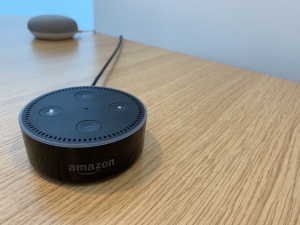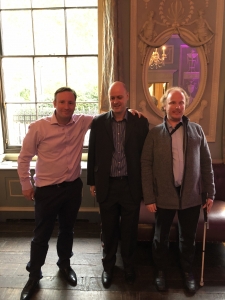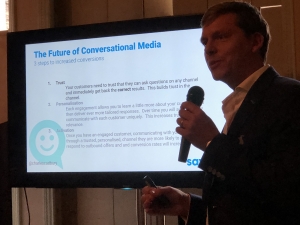We all have websites and within those websites alongside educating customers, informing them of new products and services, explaining our company ethos and other matters there are web forms.
These web forms are full of utility and often drive a transaction or business process. Quite often the success of your website is to get people to fill in a particular form. UX and UI designers think about the different personas visiting your website and provide different user journeys to fulfil website goals. Indeed, Google analytics allows you to set up goals for the submittal of a form. Following this, based on your average order values and conversion rates you can tell what a goal is worth.
If the output your driving is for a user a customer to fill in a form either to enquire for customer support, get a quote or perhaps even to purchase order the less friction you can create on the journey the better.
In instances where using the voice is quicker, simpler and easier than using a traditional website or mobile interface then a voice first approach should be considered. Conversational interfaces for interacting with technology are not to substitute existing legacy systems but to complement them.
With the rise of smart speakers, voice assistance enabled on mobile phones and people’s behaviours moving towards sending voice notes over text messages there are big opportunities for you and your customers interacting via Alexa and Google assistant. If you haven’t already tried it and you’re an iPhone user setting up a calendar appointment or reminder using Siri is far quicker than manually touching your screen on your mobile phone to make this happen. This is because we can talk 4 times faster than we can type.
A use case of this in action is Virgin Trains. To book a train ticket on the traditional website took an average user seven minutes. When Virgin Trains launch the Alexa skill for customers train ticket booking times reduced to 2 minutes. Clearly, for the customer journey this is for faster quicker and simpler. Furthermore once Virgin Trains let the history of what the customer wanted for example the typical commute the user could simply asked for the last train ticket which would speed up the purchasing cycle yet again.
Recently, we launched a home valuation Alexa skill for Hunters. Whilst want we did may seem rather innovative and was a UK first in essence we ran a number of workshops with our customer to establish which Alexa skill would offer the greatest ROI and solve the biggest problem.
The consensus was to convert the popular web form for home valuation on the Hunters.com website to an Alexa Skill. Since launching the Skill the Hunters franchise network have given positive feedback and new sources of leads are generated for agents.
Your website will have web forms embedded within it. These will range from customer service and support, to general enquires and product reviews. You can take your existing proven web form interfaces to the smart speaker and voice assistants ecosystem.
Finally, because we live in the now economy and everyone is wanting to save time, money and increase convience voice interfaces will win out on the long term. Voice only interfaces might be low for e-commerce transactions but the addition of screens for multimodal experiences is changing this. Soon people will be browsing the web on their Smart TV with their voice and making purchases. Google Home Hubs and Amazon Echo Shows have screens allowing you to see and hear responses when interacting with smartspeakers.
To learn more visit:




